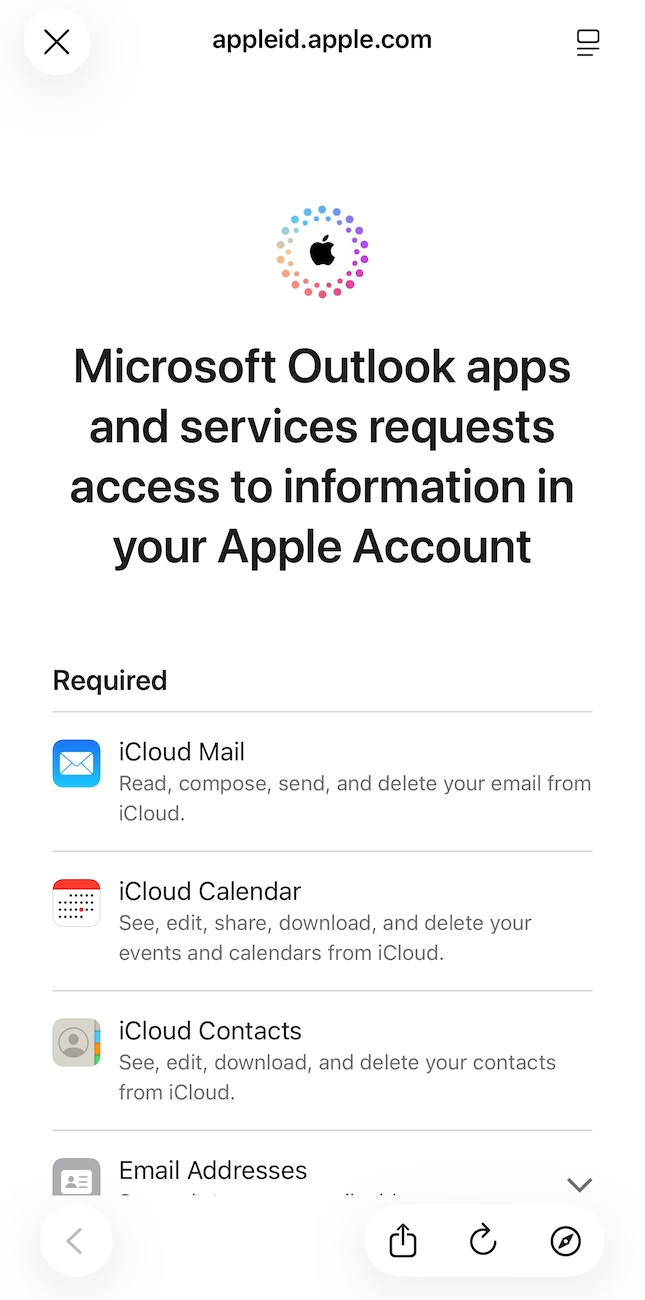Outlook Enhances Cross-Platform Productivity with Native iCloud Integration
Microsoft has significantly streamlined the experience for users managing their Apple services within its productivity suite. Announced on October 29, 2025, via the Microsoft Tech Community blog, the latest update for Outlook now offers seamless, native integration for iCloud Mail, Calendar, and Contacts. This development marks a substantial step forward in cross-ecosystem functionality, eliminating the previous reliance on third-party plugins and manual workarounds.
The integration, which begun its phased rollout to Microsoft 365 subscribers on October 30, promises full availability by November 15, 2025. This move directly addresses a long-standing demand from users who operate across both Apple and Microsoft environments, providing a unified platform for their essential communications and scheduling needs.
Deeper Integration Delivers Seamless User Experience
This isn't just a simple add-on; it's a fundamental enhancement to Outlook’s capabilities. The update introduces native two-way synchronization for iCloud Mail (IMAP/SMTP), Calendar (CalDAV), and Contacts (CardDAV). What does this mean for you? It ensures that any changes made in Outlook—or directly within your iCloud apps—are reflected instantly across both platforms.
A key improvement is the automated authentication process via OAuth 2.0, dramatically reducing setup time from several minutes to under one minute. This really makes a difference when you're busy. Microsoft's benchmarks indicate a 50% increase in sync speeds compared to earlier iterations from 2024, ensuring your data is always current. Furthermore, this new capability also supports shared iCloud family calendars natively within Outlook, a notable differentiator from some competing integrations. Just yesterday, October 30, Microsoft pushed a minor patch (version 16.0.17830.20166 for Outlook desktop) to iron out initial sync issues reported by early adopters, a testament to their responsiveness.
Positive Reception and Broader Industry Trends
User feedback has been overwhelmingly positive. Discussions across platforms like Reddit's r/Outlook and r/apple, active since October 30, highlight immense satisfaction, with many describing the update as a "game-changer" for work-life balance. An informal poll on Microsoft Forums showed roughly 85% positive sentiment for the ease of setup. While initial reports did note minor bugs, such as duplicate contacts, these appear to be largely addressed by yesterday's patch.
Industry experts are also taking note. Tech analyst Ming-Chi Kuo, writing for 9to5Mac, lauded the integration as "a step toward unified productivity," forecasting a potential 10-15% boost in Outlook adoption among iOS users. Mary Jo Foley of ZDNet pointed out that this could reduce reliance on Apple’s native apps, potentially impacting market share in enterprise settings where mixed ecosystems are common. Of course, the privacy aspect always comes up; groups like the EFF have voiced concerns about potential data sharing, though Microsoft maintains no new data collection is involved. This strategic move, analysts say, reflects a broader industry trend towards more open ecosystems, partly driven by regulatory pressures.
Significance and Availability Across Regions
The significance of this update extends beyond mere convenience. By bridging the gap between Apple and Microsoft ecosystems, this integration has the potential to add 5-10 million new users to Outlook, according to analyst estimates cited by TechCrunch. It significantly enhances productivity in hybrid work environments, which is crucial as remote and flexible work models continue to grow. This capability, a key differentiator, stand out from competitors like Gmail by offering offline access to iCloud data in Outlook desktop, up to seven days cached, marking a two-fold improvement in reliability over previous workarounds like the iCloud for Windows app.
Users with an active Microsoft 365 subscription can access this new functionality at no additional cost. Regional rollouts, however, will vary. The EU and UK, for instance, are seeing prioritized rollout due to Digital Markets Act (DMA) compliance, ensuring users here receive enhanced privacy controls and granular sync permissions. In contrast, markets like Asia-Pacific, including China and Japan, will see a delayed rollout to November 30, 2025, to accommodate local data sovereignty laws and specific iCloud availability nuances.
